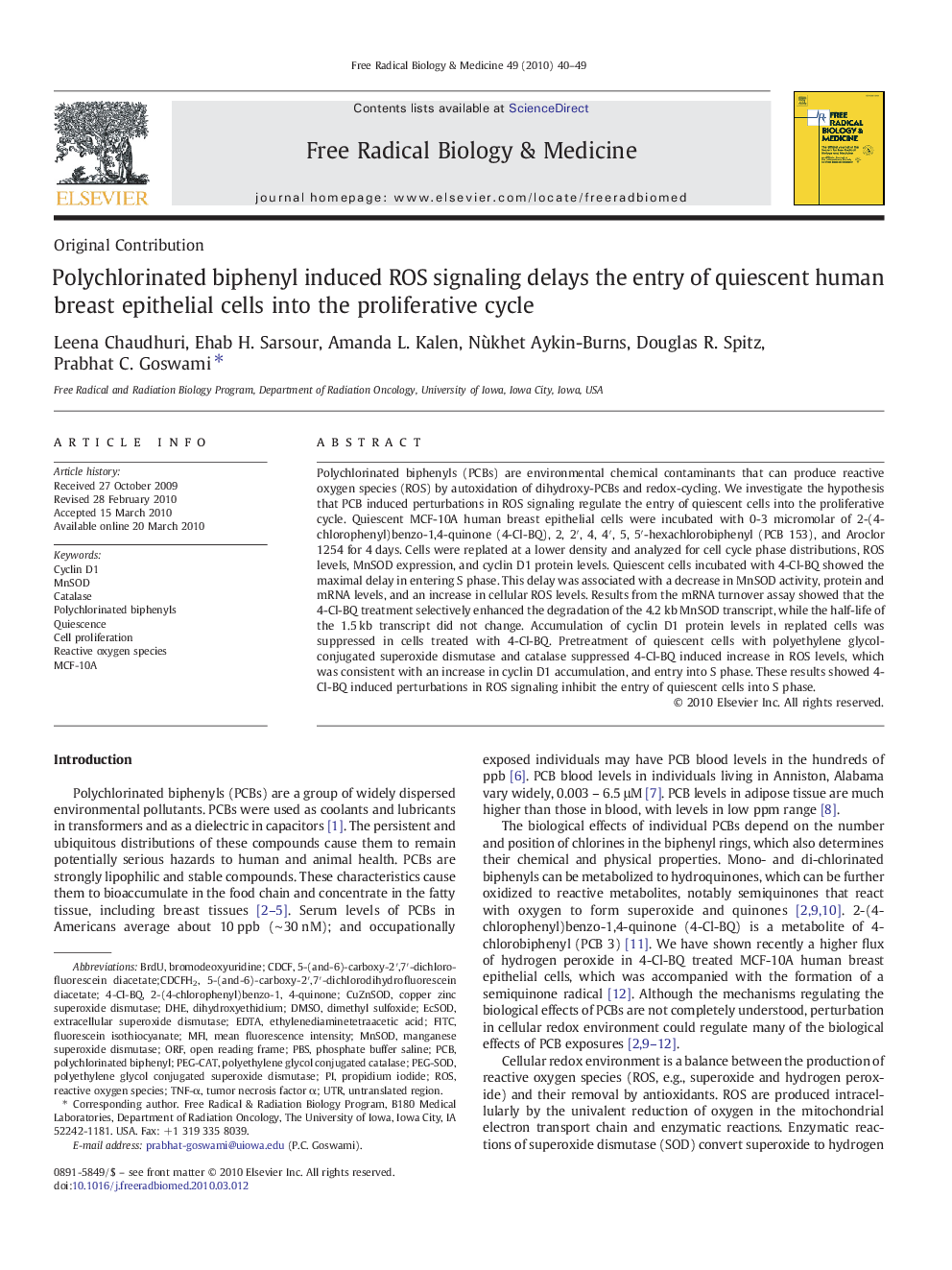| Article ID | Journal | Published Year | Pages | File Type |
|---|---|---|---|---|
| 1909415 | Free Radical Biology and Medicine | 2010 | 10 Pages |
Abstract
Polychlorinated biphenyls (PCBs) are environmental chemical contaminants that can produce reactive oxygen species (ROS) by autoxidation of dihydroxy-PCBs and redox-cycling. We investigate the hypothesis that PCB induced perturbations in ROS signaling regulate the entry of quiescent cells into the proliferative cycle. Quiescent MCF-10A human breast epithelial cells were incubated with 0-3 micromolar of 2-(4-chlorophenyl)benzo-1,4-quinone (4-Cl-BQ), 2, 2â², 4, 4â², 5, 5â²-hexachlorobiphenyl (PCB 153), and Aroclor 1254 for 4Â days. Cells were replated at a lower density and analyzed for cell cycle phase distributions, ROS levels, MnSOD expression, and cyclin D1 protein levels. Quiescent cells incubated with 4-Cl-BQ showed the maximal delay in entering S phase. This delay was associated with a decrease in MnSOD activity, protein and mRNA levels, and an increase in cellular ROS levels. Results from the mRNA turnover assay showed that the 4-Cl-BQ treatment selectively enhanced the degradation of the 4.2Â kb MnSOD transcript, while the half-life of the 1.5Â kb transcript did not change. Accumulation of cyclin D1 protein levels in replated cells was suppressed in cells treated with 4-Cl-BQ. Pretreatment of quiescent cells with polyethylene glycol-conjugated superoxide dismutase and catalase suppressed 4-Cl-BQ induced increase in ROS levels, which was consistent with an increase in cyclin D1 accumulation, and entry into S phase. These results showed 4-Cl-BQ induced perturbations in ROS signaling inhibit the entry of quiescent cells into S phase.
Keywords
PBSPEG-CATPEG-SODFITCMFIPCBCDCFORFMnSODCuZnSODDMSOecSODEDTAEthylenediaminetetraacetic acidBrdUbromodeoxyuridinePolychlorinated biphenylDimethyl sulfoxideextracellular superoxide dismutasemanganese superoxide dismutasecopper zinc superoxide dismutasephosphate buffer salinefluorescein isothiocyanateopen reading framemean fluorescence intensityDHE
Related Topics
Life Sciences
Biochemistry, Genetics and Molecular Biology
Ageing
Authors
Leena Chaudhuri, Ehab H. Sarsour, Amanda L. Kalen, Nùkhet Aykin-Burns, Douglas R. Spitz, Prabhat C. Goswami,
